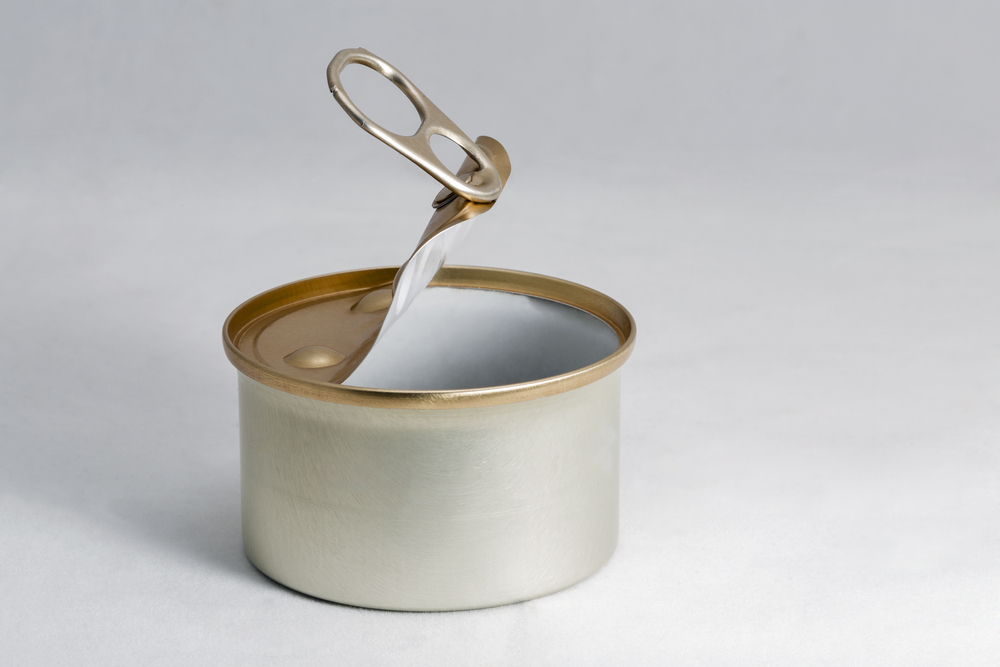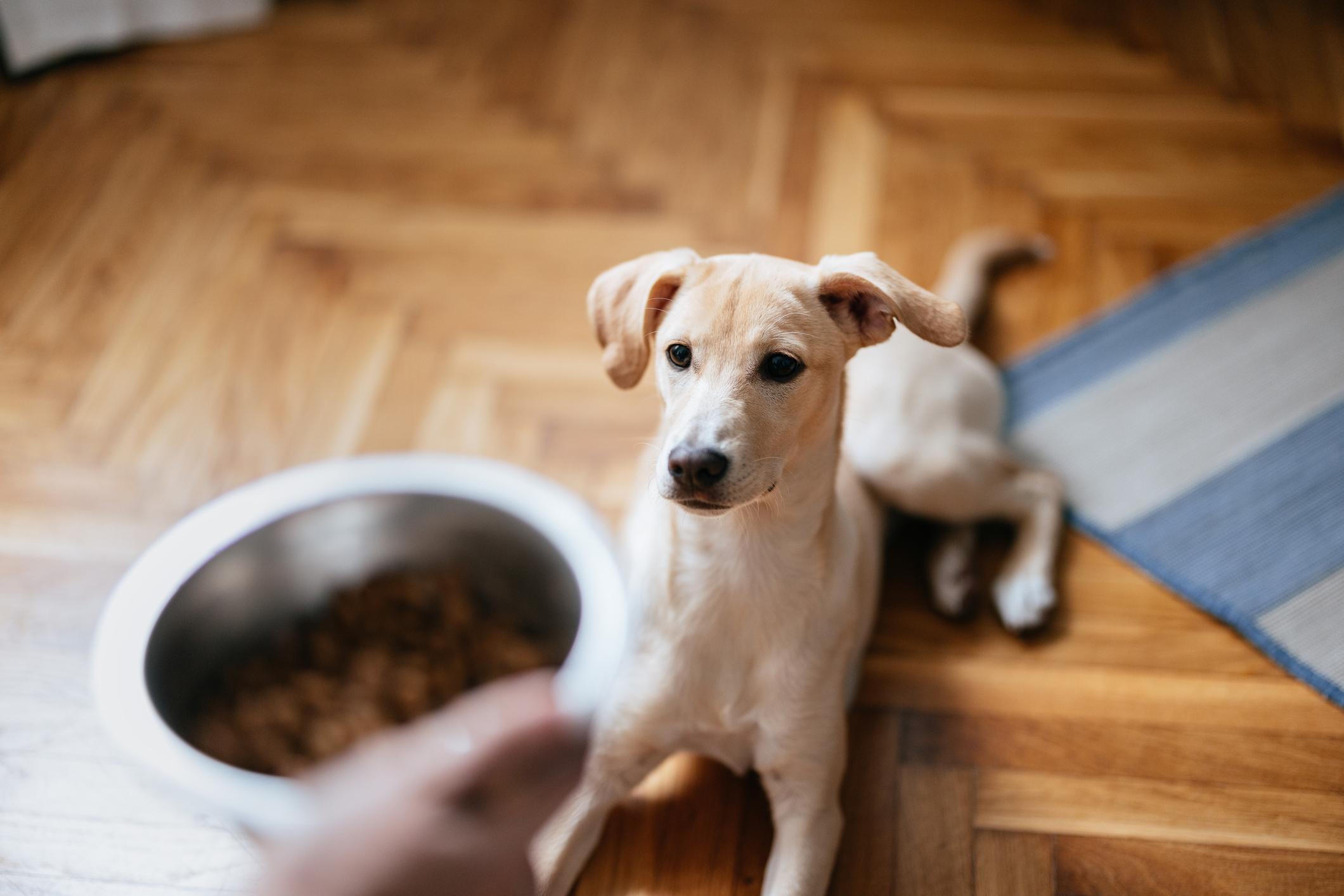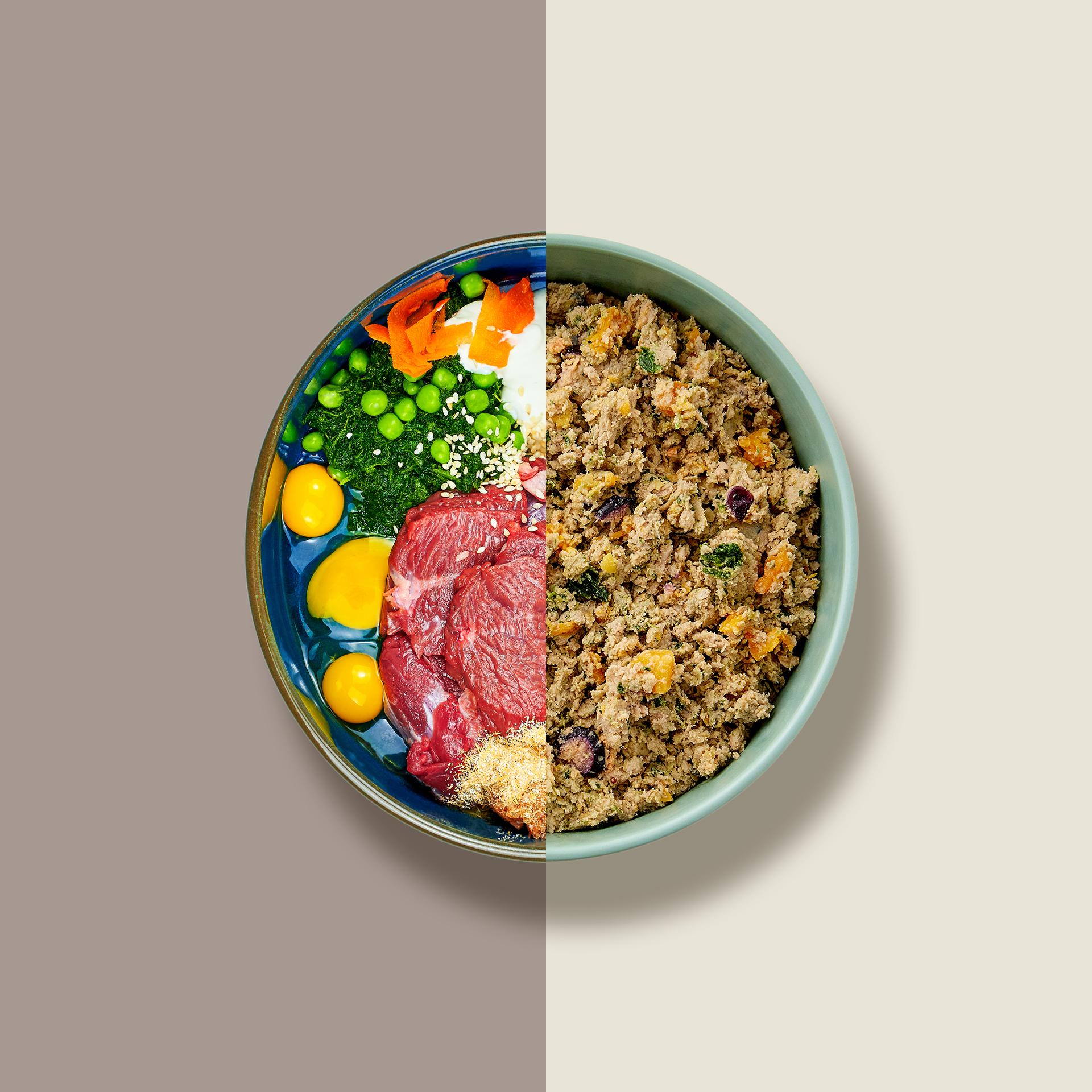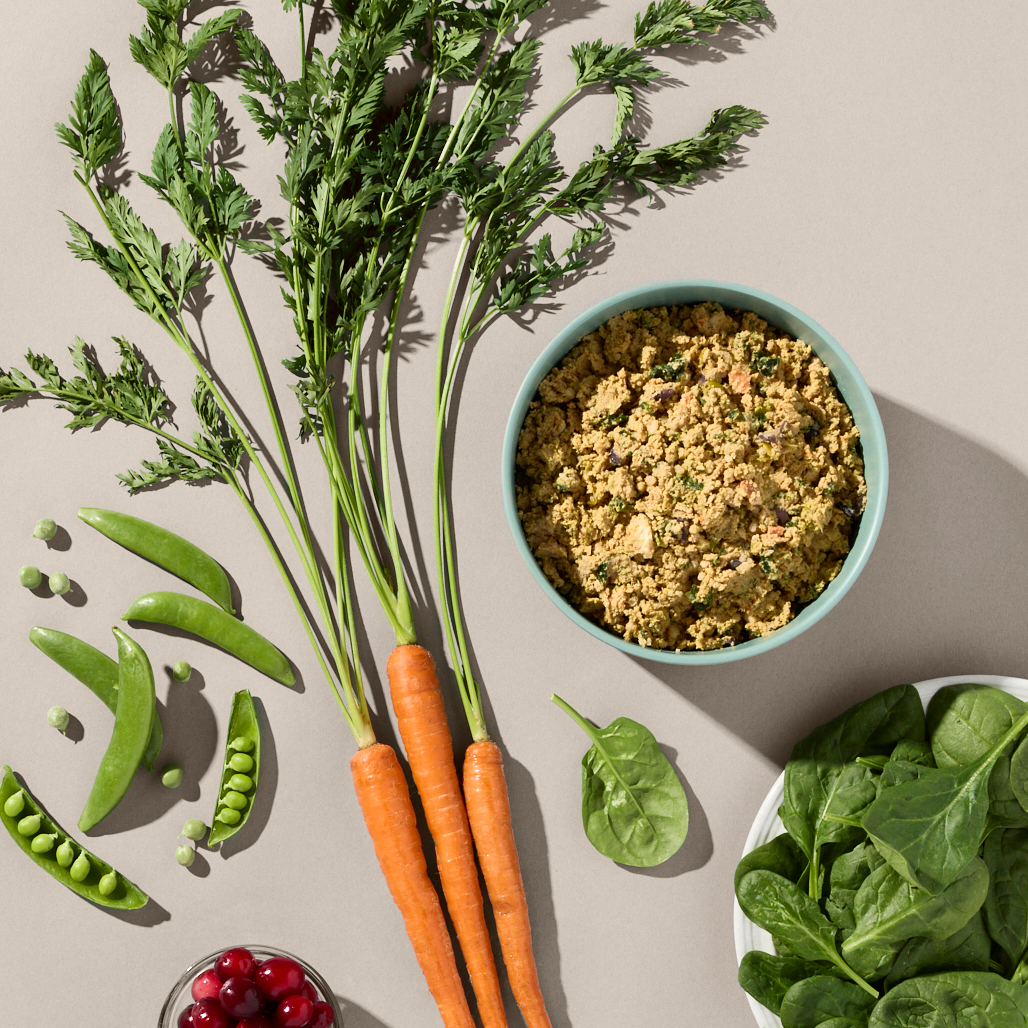Hey Ollie blog readers! We’re offering you an exclusive 60% OFF your starter box! Try now!
Wet food has a reputation for being superior to kibble. Some humans think it’s better because it’s got more moisture in it, and some pups seem to find it more appetizing than dry food. But looks can be deceiving when it comes to these cans. We spoke with John Gicking, of BluePearl Veterinary Partners, board certified in veterinary emergency and critical care, who helped us debunk some of the myths about wet food:
Wet food ingredients aren’t necessarily high quality
Most wet foods still contain by-products and rendered meat. Gicking suggested that we look at the labels of a few brands—one in particular lists potassium chloride, choline chloride, cobalt proteinate, chicken meal and many other unpronounceable ingredients. Other canned food contains non-specific animal parts, such as liver, heart or tripe—but doesn’t source the animal. Others contain artificial sweetener.
Those meat chunks aren’t all real meat
Many wet foods have binders to hold the meat together so that it will resemble natural chunks, Glicking says. These may be made with wheat gluten or gum, which can be an issue for dogs that are allergic to gluten or can cause stomach issues such as diarrhea.
Canned food may contain BPA
Researchers at the University of Missouri found that dogs who ate two different brands of widely available canned dog food were exposed to BPA after just two weeks, and their BPA levels tripled during that two-week period. Exposure to BPA has been linked with increased blood pressure, neurological problems and possibly cancer.
The cooking method is complex
They don’t simply chop up some meat and veggies and pop them into a can. The canned food method includes assembling raw ingredients including meat—which could be a combination of chicken breasts and chicken head, feet, kidney, heart, liver, stomach and intestine. Next, the gravy is made grains, minerals and vitamins—plus thickeners and gels.
The so-called benefits can be found elsewhere
Wet food is often prescribed for dogs with kidney and bladder problems because they can benefit from the increased moisture—but there’s also higher water content in freshly cooked food. Same goes for pups with bad teeth: wet food is easier for them to eat, but so are freshly cooked meals.
The Ollie blog is devoted to helping pet parents lead healthier lives with their pups. If you want to learn more about our fresh, human-grade food, check out MyOllie.com.
Tagged As:

The nutrition your dog needs,
the food they want.

Enjoying our articles? Subscribe our Newsletters and get new articles directly to your inbox
You might also like
12 August 2025
5 MINS READ
Top 8 Allergens Hiding in Your Dog’s Bowl
As pup parents, we never want to see our dogs uncomfortable. When it comes to itching, swelling, and upset stomachs, the culprit may be in their bowl. Understanding the most common allergens and t…
by Ollie Pets
12 August 2025
5 MINS READ
Raw vs. Gently Cooked: Which Is Ideal for Your Pup?
As more pup parents seek the best fresh dog food for their companions, they may find themselves choosing between a raw diet and a fresh diet. While cases have been made for both options, let’s exa…
by Ollie Pets
12 August 2025
5 MINS READ
Why Human-Grade Ingredients Matter for Your Dog
A healthier, happier dog starts with the right food. That said, knowing which diet is best for your pup can be overwhelming at times. Understanding what human-grade means, why it matters, and how …
by Ollie Pets







